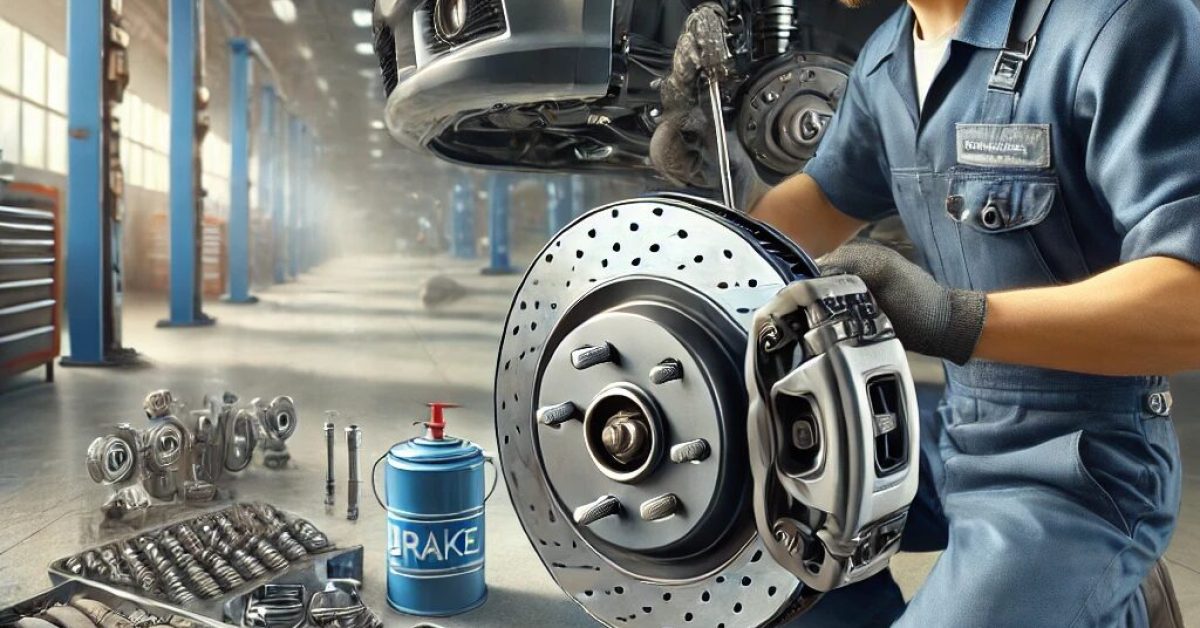When it comes to your vehicle’s safety, few components are as critical as the brake system. Proper repair of brakes and maintenance are essential for ensuring that your car can stop effectively and reliably, especially in emergency situations. In this article, we’ll explore the key aspects of brake repair and help you understand when it’s time to schedule a brake service.
Understanding Your Brake Rotors and Brake Pads
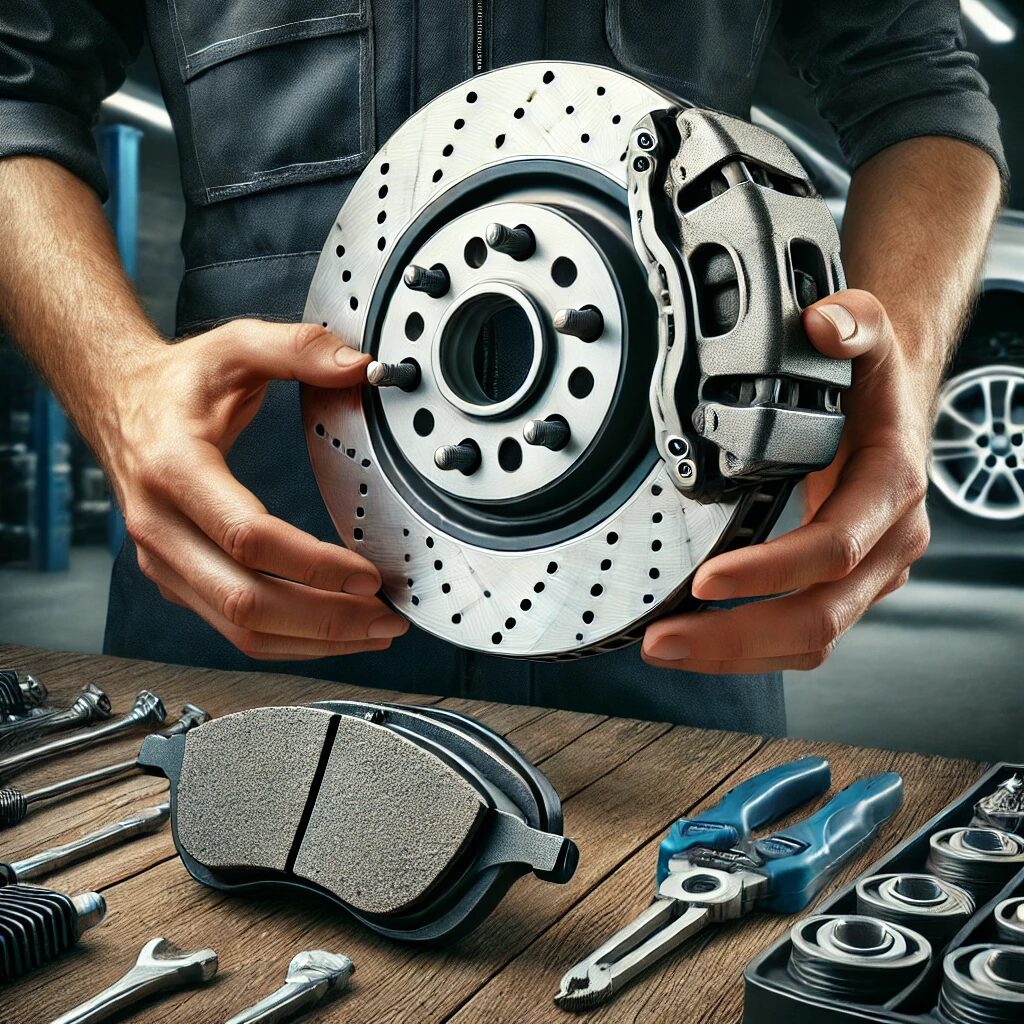
Your vehicle’s braking system consists of several crucial components, including brake pads, brake rotors, brake caliper, brake lines, disc brakes, brake shoes, and brake fluid. When you press the brake pedal, hydraulic fluid is pushed through the brake lines, causing the brake caliper to squeeze the brake pads against the rotors or drum brakes. This friction slows down and stops your vehicle.
Over time, brake pads and rotors experience wear and tear due to the constant friction they endure. As the brake pads wear down, their ability to generate sufficient friction diminishes, resulting in reduced stopping power. If left unaddressed, worn brake pads, brake shoes, and disc brakes can cause damage to the brake rotor, leading to more extensive and costly repairs.
Common Brake Problems
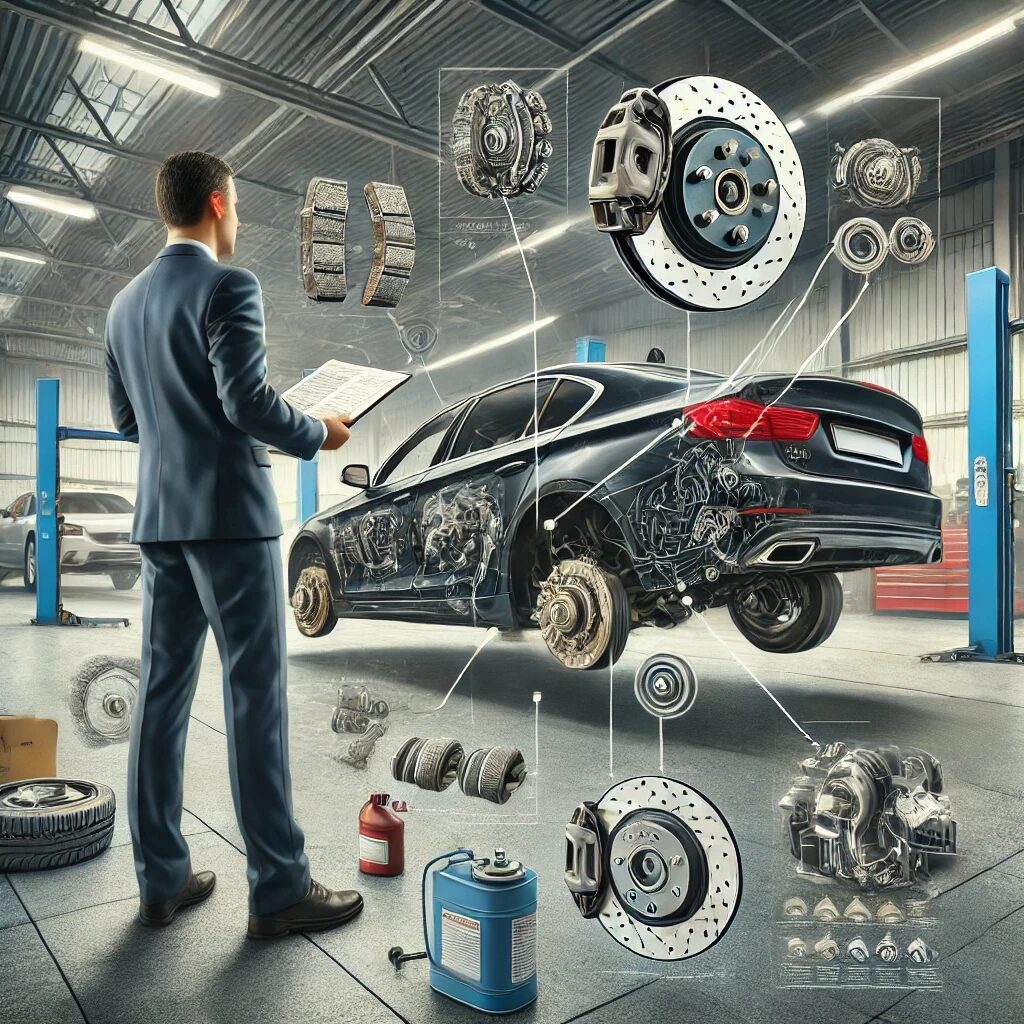
One of the most common problems is worn brake pads. If you hear a squealing or grinding noise when you apply pressure to the brake pedal, it’s likely need to replace the brake pads. This noise is caused by the wear indicator on the brake pad, which is designed to alert drivers when the pads have reached the end of their lifespan.
Another issue that may arise is a soft or spongy brake pedal. This can indicate a problem with the master cylinder or a leak in the brake lines. If you notice that your brake pedal feels unusually soft or sinks to the floor when you apply pressure, it’s crucial to have your braking system inspected by a professional mechanic.
Brake fluid leaks are another common problem. Brake fluid is a hydraulic fluid that plays a vital role in the functioning of your brakes. If you notice a puddle of fluid beneath your car or a sudden drop in brake performance, it could be a sign of a brake fluid leak. This issue should be addressed promptly to avoid compromising your vehicle’s stopping power.
The Importance of Regular Brake System Inspections
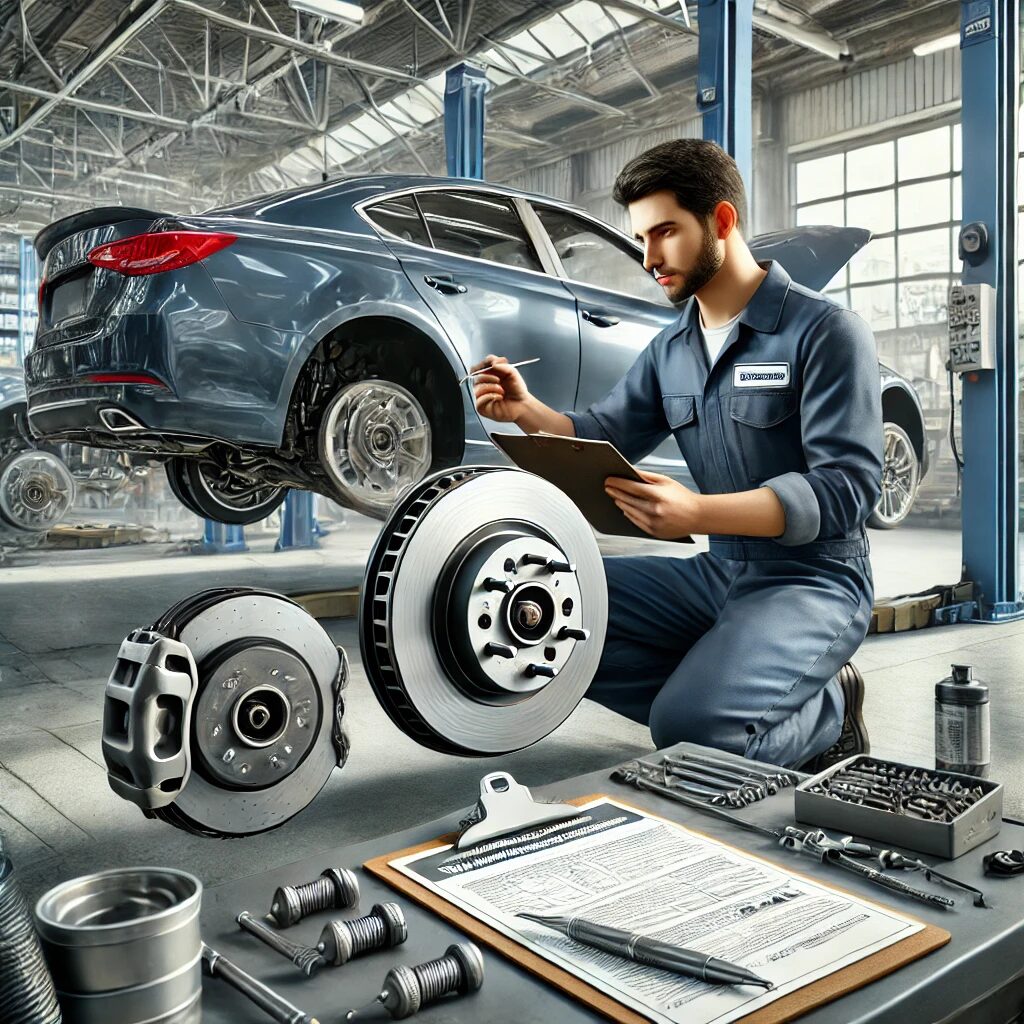
To prevent and experience brake problems and ensure your vehicle’s safety, it’s essential to have regular brake parts inspections performed by a qualified mechanic. During a brake inspection, the technician will assess the condition of your brake pads, rotors, calipers, and line brake. They will measure the thickness of your brake pads and check the rotors or drum brakes for signs of wear, warping, or damage.
If any issues are identified during the inspection, the mechanic will recommend the necessary brake repair services. This may include replacing brake pads, resurfacing or replacing the rotor, or flushing and replacing the brake fluid. By addressing these issues promptly, you can maintain your vehicle’s stopping power and avoid more extensive and expensive repairs down the line.
When to Schedule Brake Repair Service
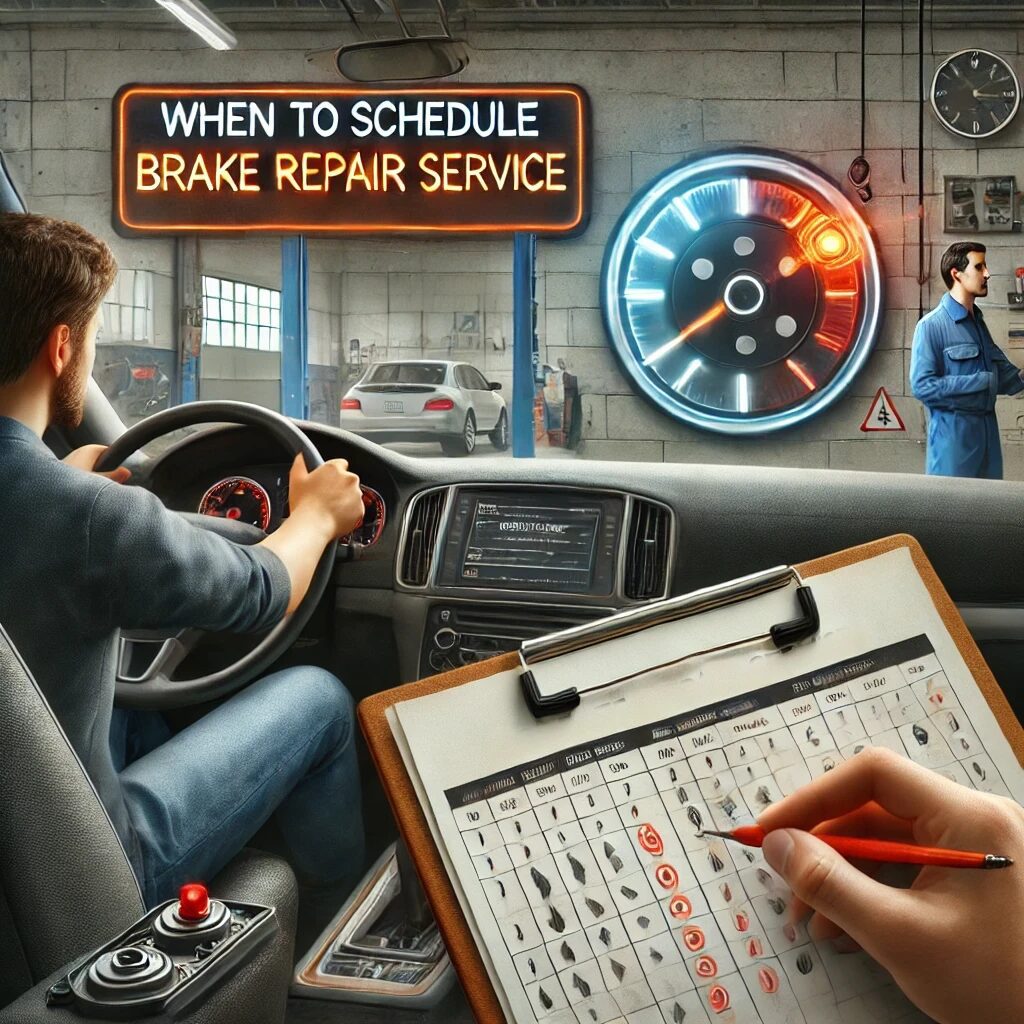
So, how do you know when it’s time to schedule a brake repair service? Here are a few signs to watch out for:
- Squealing or grinding noises when braking
- Vibrations or pulsations in the brake pedal or steering wheel during braking
- Increased stopping distance or reduced stopping power
- The brake pedal feels soft, spongy, or sinks to the floor
- A brake light warning illuminates the dashboard
If you experience any of these symptoms, it’s time to make an appointment with a trusted auto repair shop for new brakes, brake inspection, and potential brake repair. Don’t wait until your brakes fail completely, as this can put you, your passengers, and other drivers at risk.
Conclusion
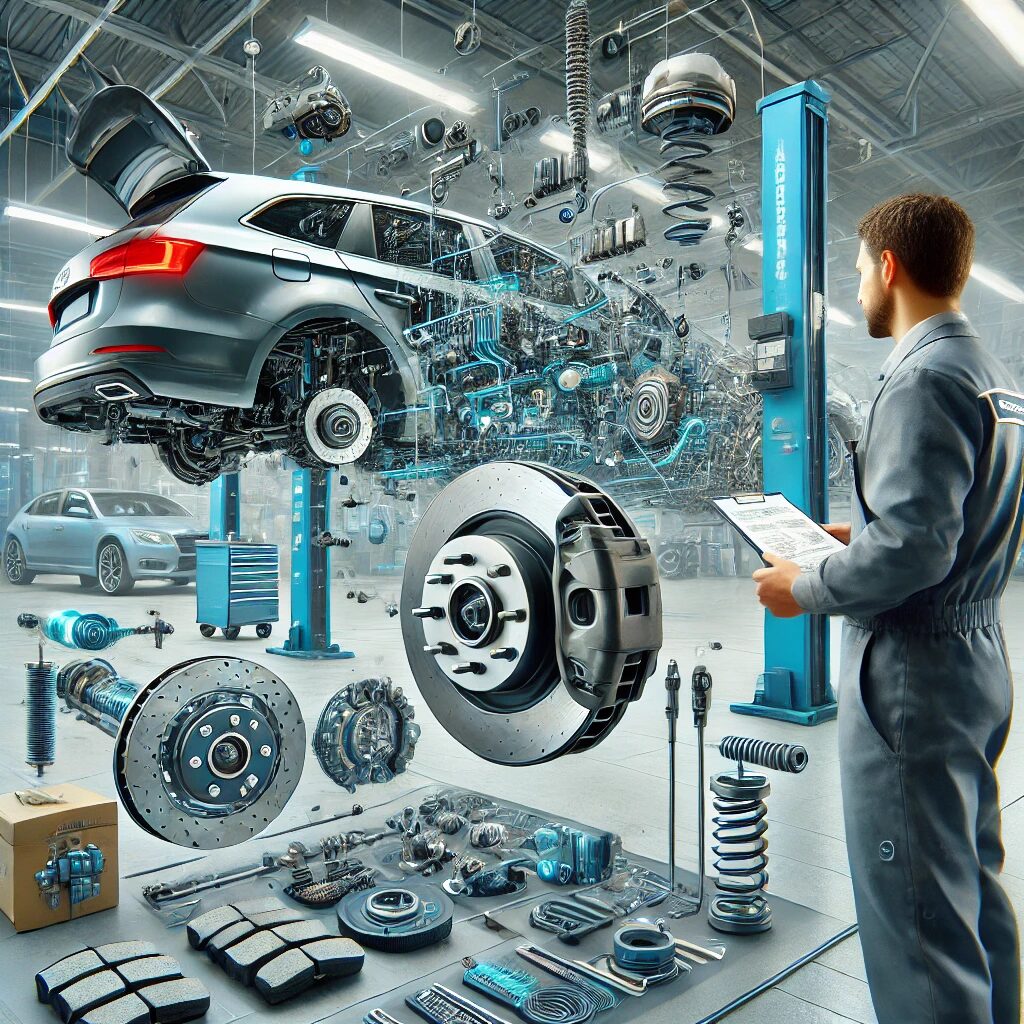
Proper brake repair and maintenance are crucial for ensuring your vehicle’s safety and reliability. By understanding your brake system, recognizing brake problems, and scheduling regular brake inspections, you can keep your brakes in top condition and avoid costly repairs. If you suspect any issues with your brakes, don’t hesitate to seek the help of a professional mechanic. Your safety on the road depends on it.
Get Your Brakes Checked Today at Metric Motors, the #1 Brake Service Provider in Loveland, Colorado!

Don’t compromise your safety on the road – if you’ve noticed any warning signs of brake issues, such as squealing noises, vibrations, or reduced stopping power, it’s time to take action. Trust the experts at Metric Motors, the leading brake service provider in Loveland, Colorado, to ensure your vehicle’s brakes are in top condition. With their team of highly skilled and experienced technicians, Metric Motors offers comprehensive brake inspections, repairs, and maintenance services to keep you and your loved ones safe on the road.
As the number one choice for brake service in Loveland, Colorado, Metric Motors is committed to delivering exceptional quality and customer service. Their state-of-the-art facility and advanced diagnostic tools ensure that any brake issues are identified and addressed promptly and effectively. Don’t wait until it’s too late – give yourself peace of mind by scheduling your brake inspection with Metric Motors today. Contact them now to book your brake service appointment and experience the difference of entrusting your vehicle’s safety to the best in the business.
FAQ Section:
1: Why are repairing brakes and maintenance are important?
Proper repair of brakes and maintenance are crucial for ensuring your vehicle’s safety and reliability. They ensure that your car can stop effectively, especially in emergency situations, reducing the risk of accidents.
2: How often should I have my brake parts inspected?
Regular brake parts inspections are essential for vehicle safety. It’s recommended to have your brakes inspected at least once a year or whenever you notice any signs of brake issues. During an inspection, a qualified mechanic will assess the condition of your brake pads, rotors, caliper, and brake lines, and recommend any necessary repairs.
3: What should I do if I hear a squealing or grinding noise when I brake?
If you hear a squealing or grinding noise when you apply the brakes, it’s likely that your brake pads are worn and need to be replaced. This noise is caused by the wear indicator on the brake pad, which alerts drivers when the pads have reached the end of their lifespan. Schedule a brake inspection immediately to avoid further damage to your braking system.
4: Can brake drum problems affect other parts of my vehicle?
Yes, brake problems can lead to more extensive and costly repairs if left unaddressed. For es, brake drum problems can lead to more extensive and costly repairs if left unaddressed. For example, worn brake pads can damage the rotor, and a brake fluid leak can compromise the entire braking system. Regular maintenance and prompt repair of drum brakes issues can prevent damage to other parts of your vehicle and ensure safe driving conditions.
5: How often should brake fluid be replaced?
Fluid brakes should be replaced every two years or as recommended by your vehicle’s manufacturer. Regular replacement ensures the hydraulic system functions properly and helps prevent failure brakes.

